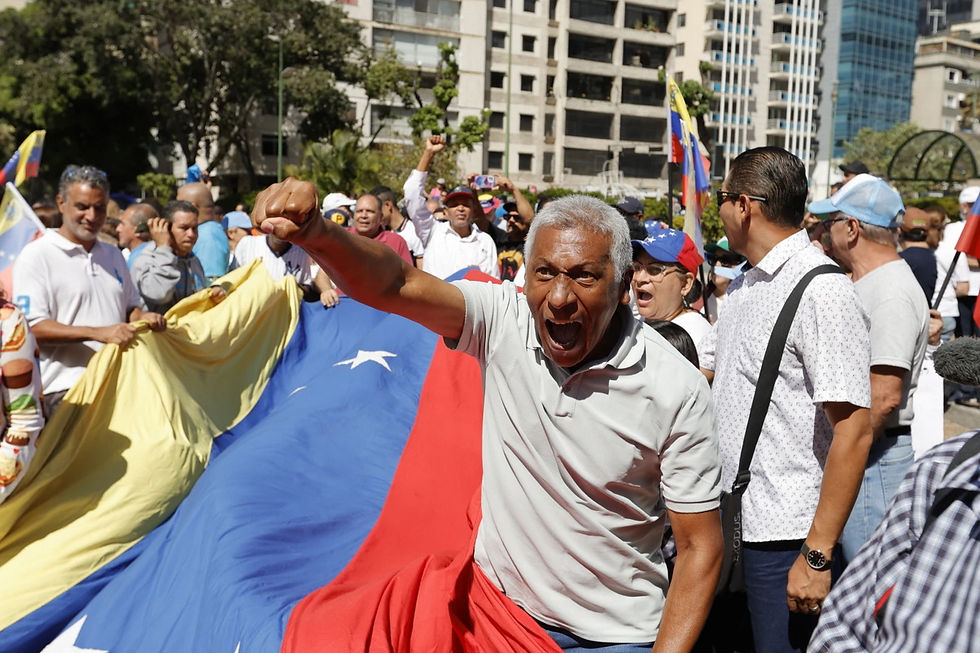By T. Jayani, JadeTimes News

Over the past 25 years, Venezuela has transformed from a democracy to a dictatorship. The people are rallying behind María Corina Machado and the opposition, aiming for change in the upcoming presidential election on July 28. However, Nicolás Maduro’s corrupt government might use underhanded tactics to undermine this effort. Is Venezuela truly on the brink of a democratic transition?
Historically, Venezuela’s move towards re democratization has been fraught with challenges. The nation shifted from a democracy under Hugo Chávez to a hybrid regime, and eventually to a full blown dictatorship under Maduro. Nonetheless, current circumstances have created a real possibility for a democratic comeback.
Previous opportunities for democratization, such as the 2002 coup attempt, the oil strike, the 2013 presidential election, and the 2015 National Assembly win by the opposition, were thwarted by several factors. These included poor timing, the benefits of high oil revenues, strong internal cohesion within the regime, and the opposition’s failure to negotiate with Chavista forces.
Today, the situation is different. The Venezuelan economy has collapsed, Chávez is no longer alive, and Maduro is struggling with a sick economy. Mismanagement and corruption, particularly in the state owned PDVSA oil company, have led to hyperinflation and a humanitarian crisis. Millions of Venezuelans have fled the country due to lack of access to food and medicine. The regime’s evolution into an open dictatorship has led to widespread repression, documented by international organizations. Popular support for Chavismo is at an all time low, and internal purges have weakened the regime. Internationally, Venezuela is increasingly isolated.
The opposition has continually sought ways to overthrow the Chavista regime, employing strategies ranging from elections and referenda to mass mobilizations and coup attempts. The latest effort, which involved appointing an interim president backed by an international coalition, also failed. However, a new opportunity emerged in October 2023 during negotiations in Barbados. The government aimed to reduce sanctions and regain political legitimacy. Surprisingly, the opposition united and held successful primaries, leading to the rise of María Corina Machado as a prominent leader.
Despite government maneuvers to disqualify Machado, she remains resilient and continues to rally support. Meanwhile, the government’s attempts to create a distraction with a territorial dispute with Guyana failed, further isolating it internationally. Even former allies like Brazil and Cuba have distanced themselves.
Internally, the government’s strategy to secure the election has faltered. Disqualifications and manipulations have not deterred the opposition. Machado’s chosen surrogate, Corina Yoris, was blocked from registering, but the opposition continues to campaign vigorously.
If the opposition wins, it would signify a significant shift towards democracy. However, the regime is unlikely to relinquish power easily due to the high costs associated with losing control. There are several potential strategies the government could employ to avoid defeat, including disqualifications, manipulation of polling centers, or postponing the election.
The transition from authoritarianism to democracy is complex and fraught with challenges. Even if the opposition wins, negotiations will be essential to ensure a peaceful transition. Factors such as the negotiating mechanism from the Barbados Agreement, the complex power dynamics within the regime, and the high levels of corruption and potential for violence complicate this process.
Ultimately, the outcome of the election on July 28 will be crucial. A victory for the opposition could herald a new era for Venezuela, influencing the global balance between authoritarianism and democracy. However, the path to a democratic transition remains uncertain and will require careful navigation of the numerous obstacles ahead.




























Comments